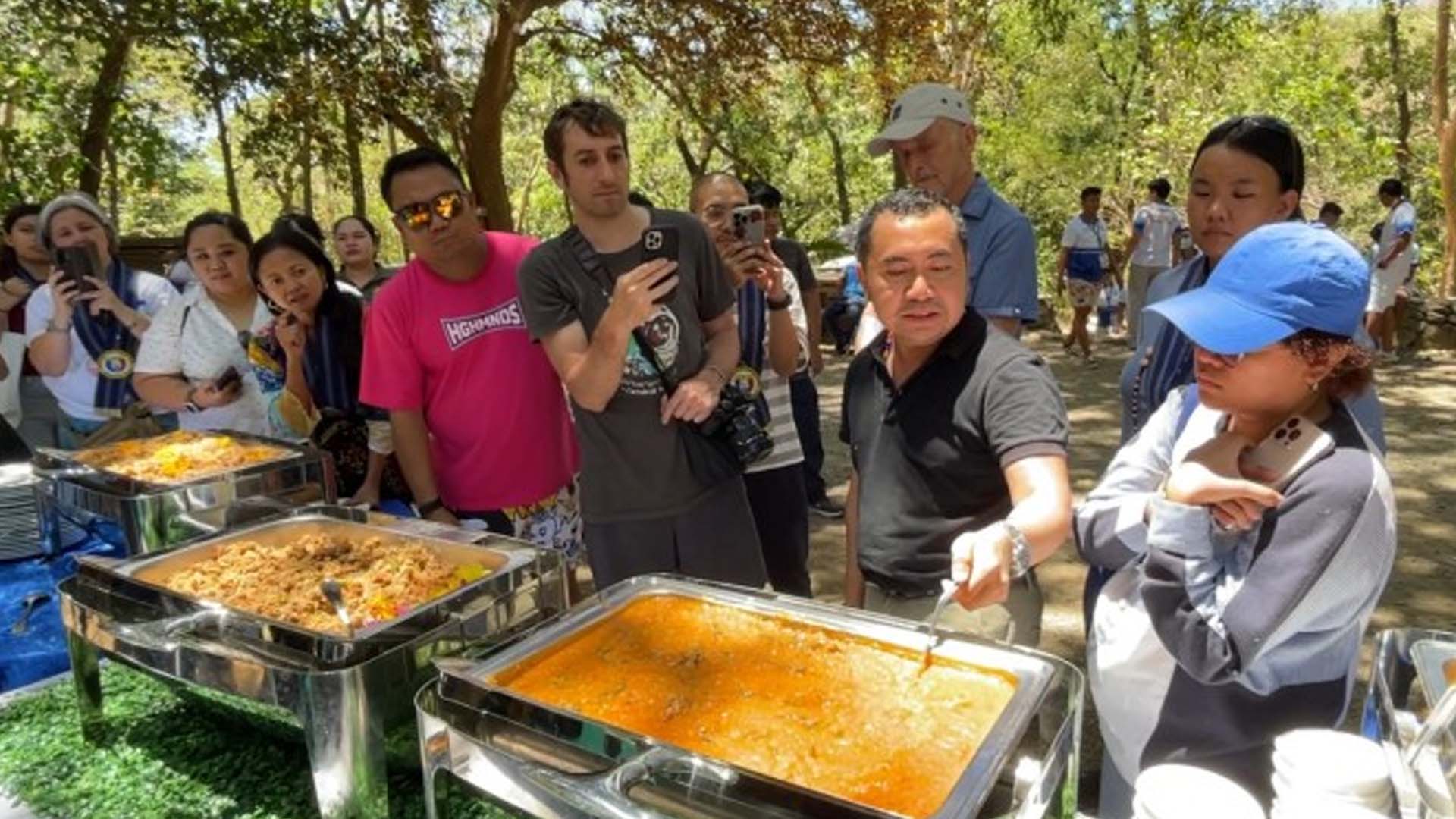Ilocos is known for its heritage sites and pristine beaches but the locals are equally mighty proud of their culinary traditions as food is more than just physical nourishment, it tells a story that connects to their roots and it is worth sharing with the world.
From the famous Ilocos “bagnet” and “longganisa”, “pinakbet”, “dinengdeng”, “sinanglaw”, and “pinapaitan, to name a few, there are other unique and savory Ilokano heritage cuisines the provinces of Ilocos Sur and Norte are proud of.
Finding the right one
Showcasing some of these Ilokano heritage dishes such as “pipian”, “sapsapuriket”, and “ladek” among others at the Caniaw Heritage and Forest Park in Bantay, Ilocos Sur offered a feast to participants of the “MAY-KAN: Find the Juan in Region 1 “ during the first day of the gastronomic tour covering the towns of Bantay, Narvacan, and Candon in Ilocos Sur.
The participants composed of local and national chefs, tour operators, influencers, media and other stakeholders likewise visited the Enrique’s mulberry farm, a new farm tourism site in Barangay Pasiocan, Bacarra, Ilocos Norte offering them a unique experience of picking sweet Illinois variety of mulberries and a taste of its by-products such as mulberry jam, mulberry juice, and concentrate among others.
MAY-KAN is derived from the Iloko and Pangasinan words “umay” which means coming from one place to another and “makan” which means food.
Now on its third year, this delicious journey gathering gastronomy tourism movers in Ilocos provinces hopes to generate more awareness and lure more tourists to stay longer, spend more, and come back again and again, said the officer-in-charge Regional Director Evangeline Dadat of the Department of Tourism in Region 1 in her speech during the welcome dinner at the Van Gogh Hotel in Candon City on Tuesday evening.
“This is one way of fulfilling our President’s goal which is to become a tourism powerhouse,” said Dadat adding that tourism will continue to drive economic growth and play a vital role in shaping the future of the region as a gastronomy destination.
One of the participants Stephan Wolff, a German language teacher and tourism practitioner told the Philippine News Agency that Ilocos dishes are among the best tasting in the country. “Some of my favorites are ‘longganisa’, ‘poqui-poqui’, and ‘laing’,” he said saying these are frequently cooked by the Ilocano household.
Though these are simply prepared as it is, Alexander Pomper, a travel photographer documenting endangered foods from all over the world and one of the participants of May-Kan gastronomy tour said his experience in Ilocos is full of excitement and fun.
May-Kan gastronomy tour was realized after the call of the United Nations Educational, Scientific and Cultural Organization (UNESCO) to have a gastronomy mapping, to build a culinary identity and boost food tourism in each nation.
Beyond the food
Among other places to be visited during the five-day tour to end on April 5 include a trek at Aw-asen Falls in Sigay, Ilocos Sur with a cooking demonstration of Chef Xavier Mercado, owner of Halo-Halo de Iloko in San Fernando, La Union; a visit to the coffee processing site in San Elias village; food tasting of indigenous cuisine in San Emilio, Ilocos Sur, visit to the rice coffee processing and tap processing in Banna, Ilocos Norte including a taste of other local dishes and adventures in the towns of Solsona, Paoay, Nueva Era, and Adams, as well as the demonstration and experience of “panagdapil” (traditional processing of extracting sugarcane juice) and vinegar making in a rural Bacsil village in Laoag City among others.
Through these community-based tourism experiences, the Department of Tourism is optimistic it will continue to strengthen the food tourism industry and generate more jobs and livelihood for the locals.
The program also forms part of the celebration of Filipino Food Month with this year’s theme: “Sarap ng Pagkaing Pilipino, Yaman ng Kasaysayan, Culture at Pagkatao”. (PNA)







